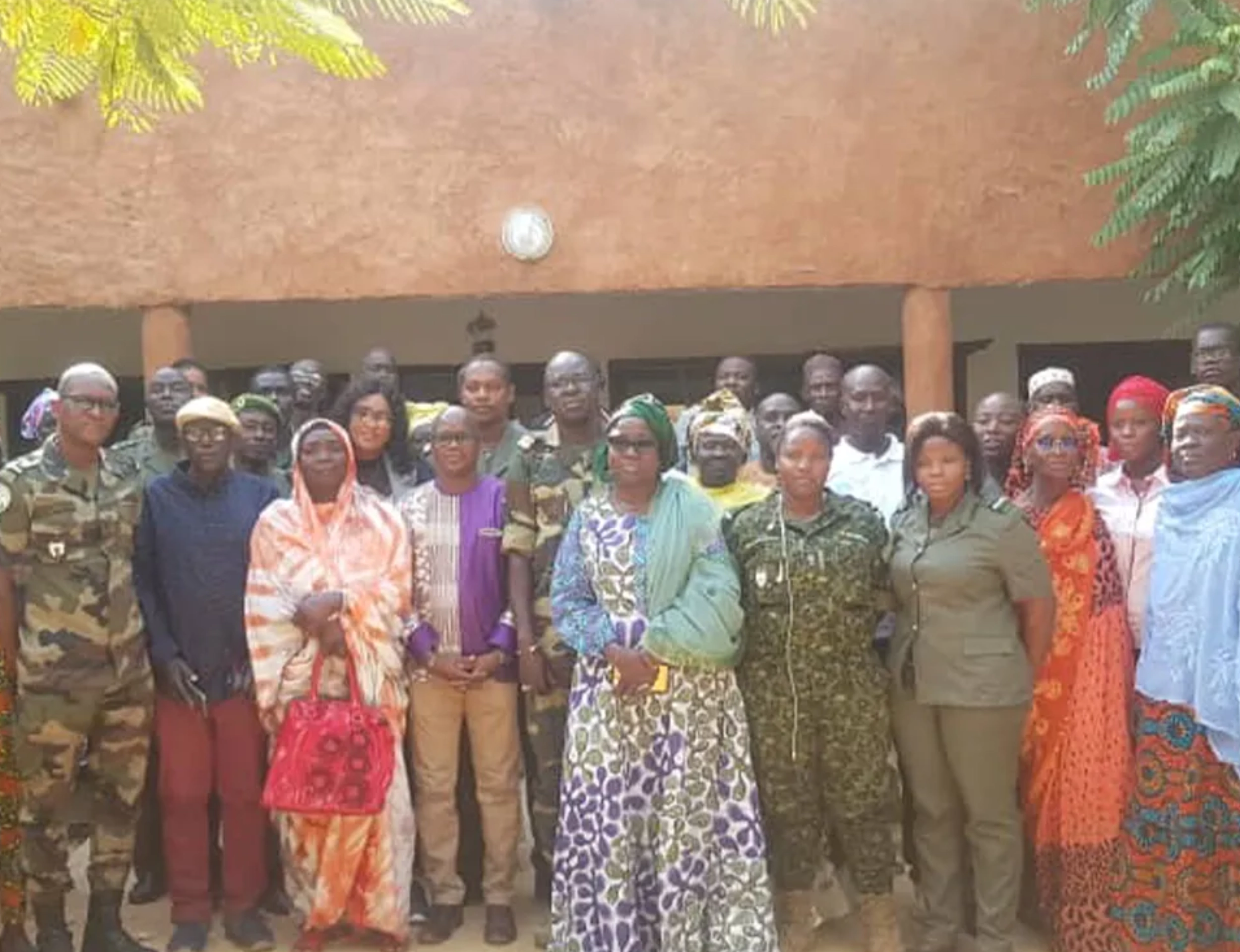
The decline in biodiversity and ecosystem services is a particularly critical issue that requires urgent action. Action is all the more urgent given that the survival of entire communities depends on the solutions that are waiting to be proposed and implemented.
In Senegal, the authorities were quick to recognize the challenges of preserving biodiversity, taking measures including the creation of nature reserves. It was with this in mind that in 1986, the Senegalese government created the Popenguine Nature Reserve (RNP) in response to the rapid environmental decline in the region and to halt the further loss of forests and biodiversity. This reserve covers an area of 1,009 hectares, including a maritime fringe located 800 meters deep and more than two kilometers long. The reserve also contains a southern portion of the ancient Popenguine forest.
Putting the community at the center of the ecological development project
n Popenguine, community stakeholders, primarily women, understood early on that the community’s survival depended on preserving biodiversity and their involvement in the life of the reserve. With this in mind, the Collective of Women’s Groups for the Protection of Nature (COPRONAT), a partnership between local authorities and the Senegalese government, was created and tasked with protecting the Popenguin Nature Reserve. COPRONAT brings together women’s groups from eight villages who work on voluntary nursery management, tree planting, erosion and waste management, environmental awareness activities, and poverty reduction by investing in the community. The group has made significant achievements in restoring the mangrove ecosystem and preserving the biodiversity of the reserve and its surroundings, covering a total area of 100 square kilometers. Thanks to the work of women, endangered species such as the jackal, mongoose, civet, grey duiker, patas monkey and bush hare have been re-established in the reserve and throughout the region.
Supporting the community to breathe new life into the reserve
Despite the goodwill of the women and the community as a whole, challenges remain, and a number of related threats, including land grabbing and certain tourist real estate projects, continue to loom over the community and the reserve. This situation is all the more problematic given that local livelihoods and economies in the Popenguine region depend on natural resources and are largely centered around livestock farming, fishing, and small-scale agriculture.
It is to give new impetus to community development around the reserve that PACE (Pan African Consortium of Experts) has engaged with the community through the project “Community Approaches and Experiences for the Conservation and Restoration of Biodiversity in the Popenguine KEUR CUPAM Natural Reserve”. Indeed, a team of PACE experts, led by Dr. Seydina Ousmane Sène, visited the community on October 6, in whose service PACE intends to put different expertise, so that the available knowledge capital can be exploited and put to the service of human capital, so that the community benefits from the full potential of the reserve.
PACE’s support will help establish and strengthen a favorable environment for community development, bringing together all stakeholders around the Ministry of the Environment. It will also cover the regeneration of survival activities for the community around the reserve, with the main objective of restoring biodiversity. PACE also aims to promote activities that build resilience to climate change and natural shocks, by focusing on female leadership; women are the first victims of the consequences of these various crises.
For the reserve to reach its full potential and for the community to benefit from the economic spinoffs, strong advocacy remains to be conducted with the authorities and partners. PACE will support the community in this regard, particularly on crucial issues that will necessarily need to be documented with evidence, such as securing land tenure and employment for youth in the region, as well as the socioeconomic situation of women.
The Popenguin reserve holds great potential that can guarantee substantial economic benefits for the community and the region, while contributing to the development of biodiversity and environmental preservation. To achieve this, any development project must be built around the community, for sustainable and resilient solutions. This is the whole meaning of PACE’s commitment to the community, in partnership with COPRONAT and all stakeholders, so that the reserve becomes an environmental, ecological, and economic hub, benefiting the populations, particularly the most vulnerable.


